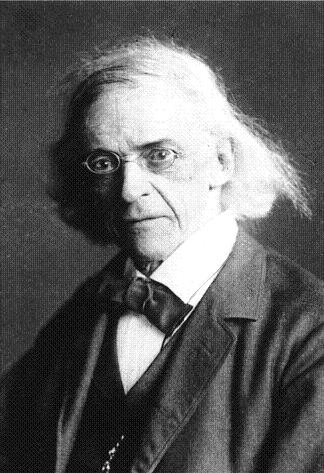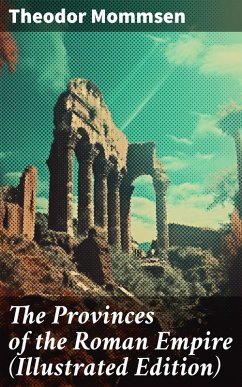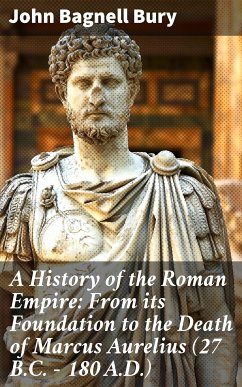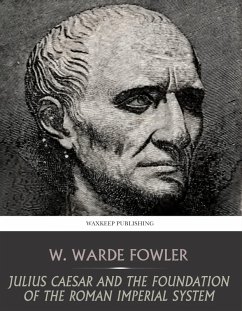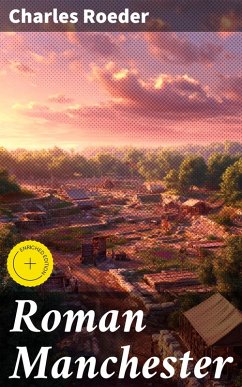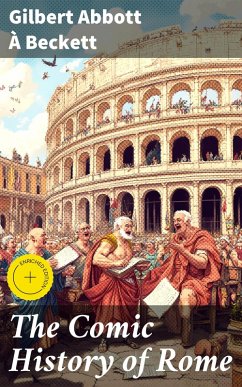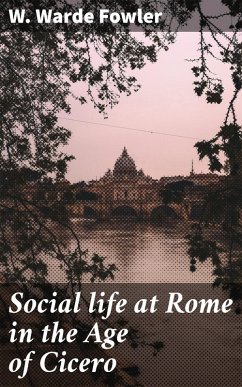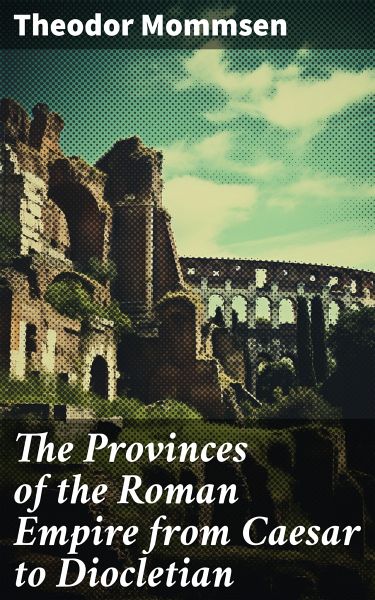
The Provinces of the Roman Empire from Caesar to Diocletian (eBook, ePUB)
Enriched edition. Including Historical Maps of All Roman Imperial Regions
Kommentar: Norcrest, Livia / Redaktion: Good Press / Übersetzer: Dickson, William P.

PAYBACK Punkte
0 °P sammeln!
In "The Provinces of the Roman Empire from Caesar to Diocletian," Theodor Mommsen deftly chronicles the extensive evolution of the Roman Empire's provincial structure during a pivotal era. Renowned for its meticulous scholarship and engaging prose, the book captures the intricate socio-political dynamics that characterized Roman governance and regional administration. Mommsen's literary style reflects a harmonious blend of rigorous historical analysis and vivid narrative, making complex themes accessible to a wide range of readers. Positioned within the scholarly context of 19th-century histor...
In "The Provinces of the Roman Empire from Caesar to Diocletian," Theodor Mommsen deftly chronicles the extensive evolution of the Roman Empire's provincial structure during a pivotal era. Renowned for its meticulous scholarship and engaging prose, the book captures the intricate socio-political dynamics that characterized Roman governance and regional administration. Mommsen's literary style reflects a harmonious blend of rigorous historical analysis and vivid narrative, making complex themes accessible to a wide range of readers. Positioned within the scholarly context of 19th-century historiography, Mommsen's work was groundbreaking for its comprehensive examination of provincial life and its implications on the Empire's trajectory. Theodor Mommsen, a German classical scholar and politician, was deeply influenced by the political tumult of his time and his profound interest in Roman history. His extensive knowledge, acquired through both academic study and firsthand experience in Rome, culminated in this magnum opus, which earned him the Nobel Prize in Literature in 1902. Mommsen's passion for uncovering the nuanced realities of Roman provincial life is evident throughout the text, offering readers insights into the interconnectedness of culture, governance, and identity in ancient times. This book is a vital read for anyone intrigued by ancient history, particularly the complexities of Roman provincial life and its enduring significance. Scholars, students, and enthusiasts alike will find Mommsen's intricate narratives stimulate the imagination and deepen understanding of how the Roman Empire functioned beyond its capital. With its blend of scholarly rigor and engaging storytelling, "The Provinces of the Roman Empire from Caesar to Diocletian" stands as an essential contribution to historical literature. In this enriched edition, we have carefully created added value for your reading experience: - A succinct Introduction situates the work's timeless appeal and themes. - The Synopsis outlines the central plot, highlighting key developments without spoiling critical twists. - A detailed Historical Context immerses you in the era's events and influences that shaped the writing. - An Author Biography reveals milestones in the author's life, illuminating the personal insights behind the text. - A thorough Analysis dissects symbols, motifs, and character arcs to unearth underlying meanings. - Reflection questions prompt you to engage personally with the work's messages, connecting them to modern life. - Hand-picked Memorable Quotes shine a spotlight on moments of literary brilliance. - Interactive footnotes clarify unusual references, historical allusions, and archaic phrases for an effortless, more informed read.
Dieser Download kann aus rechtlichen Gründen nur mit Rechnungsadresse in A, B, BG, CY, CZ, D, DK, EW, E, FIN, F, GR, H, IRL, I, LT, L, LR, M, NL, PL, P, R, S, SLO, SK ausgeliefert werden.




